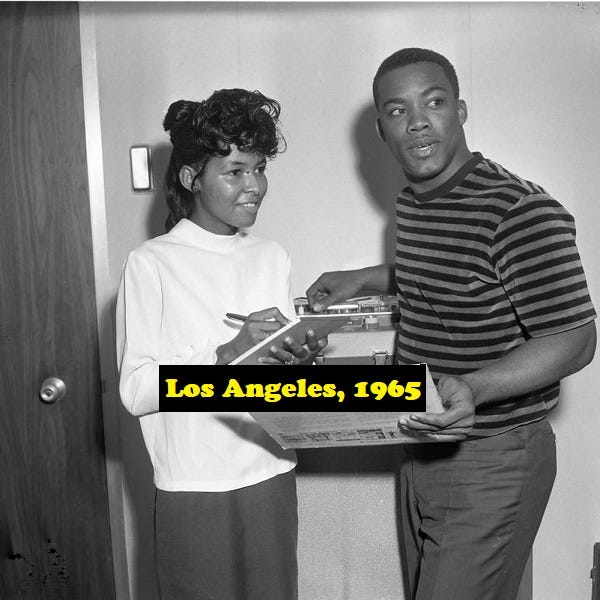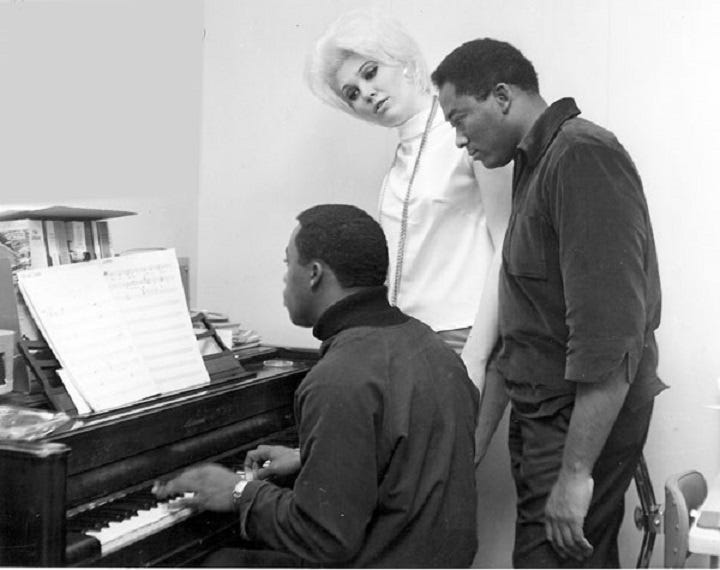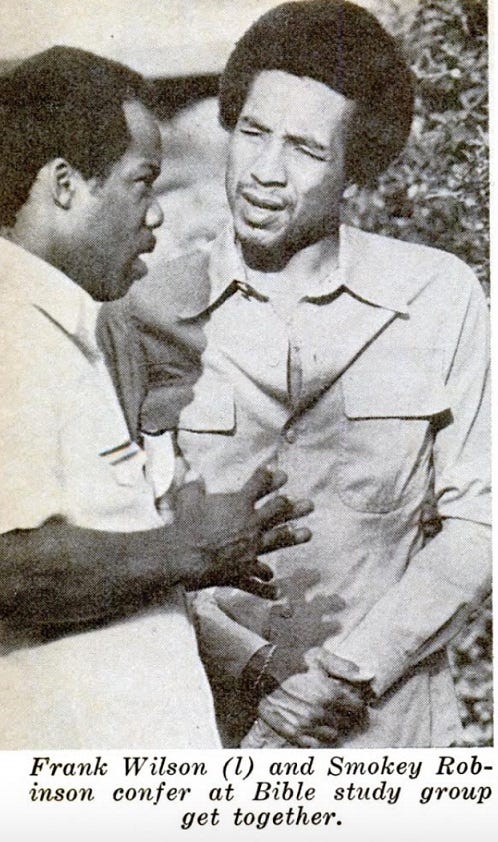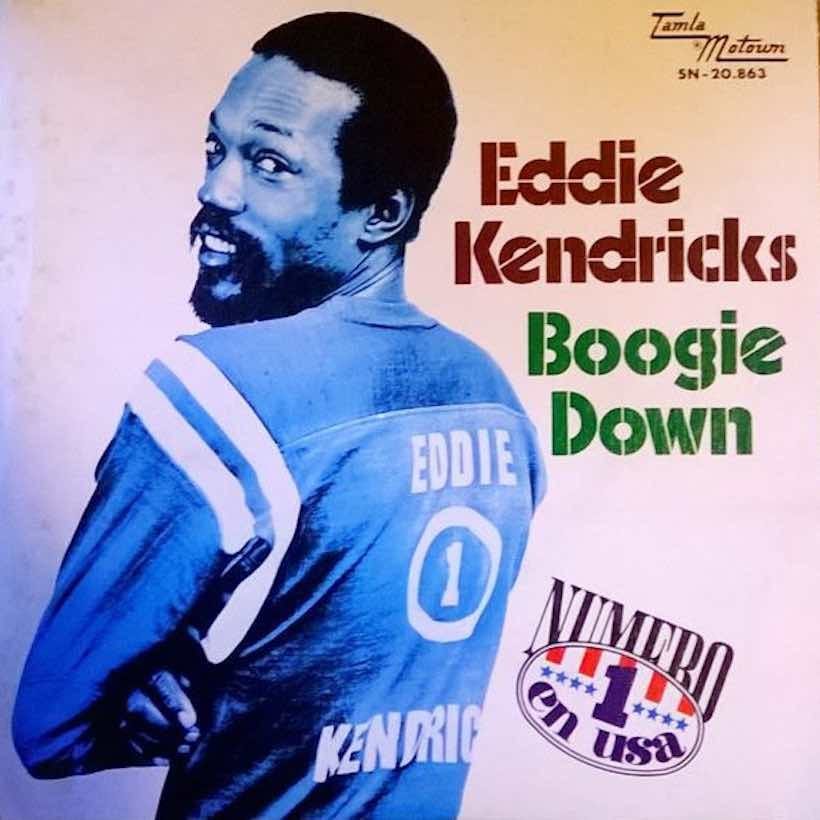Frank Wilson (December 5, 1940 – September 27, 2012) – Do I Love You (Indeed I Do) (1965)
The world's most valuable 7-inch vinyl record was meant to be the legendary Motown songwriter/producer's debut single before Berry Gordy ordered all copies destroyed.
View most updated version of this post on Substack.
Frank Wilson was a legendary Motown songwriter and producer who famously took Eddie Kendricks to #1 on both the R&B and pop charts with “Keep On Truckin'” in 1973. He recorded one Motown single under his own name, “Do I Love You (Indeed I Do)” (1965), which was destined to become the rarest Northern Soul track of all time and one of the most valuable records in the world.
Born in Houston, Texas, Wilson’s mother taught him to play the piano, and he became a member of his uncles’ vocal group the Gibbs Five. After graduating from high school he won an athletic scholarship to Southern University in Baton Rouge, Louisiana. In his first year, Wilson participated in a sit-in demonstration for civil rights and lost his scholarship.
The civil rights group CORE (Congress of Racial Equality) helped him relocate to Los Angeles. He joined a local gospel group there named the Angelaires and began writing his own songs. In 1963 he was hired as a songwriter by producers Hal Davis and Marc Gordon, who were in charge of setting up Motown’s West Coast operations.
He began writing songs for Motown artists at a prolific pace, and also releasing great records of his own using pseudonyms. He recorded for Power Records as Sonny Daye (“Long Long Road To Happiness” b/w “Bridge Of Love”), for Tollie as Eddie Wilson (“Just Call On Me”), and was credited as Chester St. Anthony on A&M (“Together”). Over time, he began assisting with the production and supervision of recording sessions. He cut demos using his own vocals for the songs he wrote, to be used as guide vocals for the artists who would be recording them.
Eventually, Davis and Gordon decided to launch Wilson as a Motown artist himself. In October, 1965, he entered the Sound Recorders studio in L.A. and recorded a song he had written titled “Do I Love You (Indeed I Do).” Its B-side “Sweeter As The Days Go By” was also finished that day, which he co-wrote with Gordon.
Frank Wilson, Hal Davis, and Chris Clark
Several key members of the group of L.A. session musicians known as the Wrecking Crew played on the two songs, including drummer Hal Blaine, keyboardist Al De Lory, bassist Carol Kaye, and guitarists Billy Strange, Tommy Tedesco, and Glen Campbell.
The tapes were sent to Detroit, where they were assigned a release date for December, 1965, intended to be issued as Soul 35019 on Motown’s Soul subsidiary. 250 demo copies were pressed on November 23, 1965. But then everything ground to a halt. When interviewed years later, Wilson recalled what happened next:
“I went to Detroit, and I hadn’t been in town more than a week. We were standing backstage at the Fox Theater, [where] they were having a Motown Revue, and [Gordy] said, ‘Frank, now you know I’m getting ready to release this record on you. We’re excited about it. But I want to ask you a question. Do you really want to be an artist, or do you want to be a writer and a producer?’. And it was right then and there I told him I wanted to be a writer and a producer. And it was decided that he would not release that record on me.”
Instead, Gordy ordered the demo copies destroyed, although he is rumored to have kept one for himself. Only two copies are known to have survived. His stated rationale behind the decision was that the company couldn’t afford to invest resources promoting an artist who wasn’t motivated to build an onstage career. But many have speculated he also wanted to prevent Davis and Gordon from becoming successful Motown producers in their own right. Gordy closed down the West Coast offices at that point (although he would later re-open them and move the entire label to Los Angeles), but offered Wilson a production deal. After accepting it, he moved to Detroit in 1966.
More than a decade later, the Northern Soul dealer and bootlegger turned producer Simon Soussan had just produced Shalamar’s debut single “Uptown Festival” (1977), a disco medley of Motown hits, and Motown was considering signing the group. He befriended Tom de Pierro, a Motown staffer who at the time was working on From The Vaults, an album of previously unreleased recordings that was eventually issued in 1979. On a visit to Motown’s Los Angeles headquarters, de Pierro showed him one of the label’s two file copies of the unreleased Soul 35019 single.
Soussan convinced de Pierro to loan one to him, and immediately had several acetate copies pressed to be sent to select influential Northern Soul DJ’s in the UK. It was falsely credited to Eddie Foster, a West Coast artist whose “I Never Knew” was a previous Northern Soul discovery. He never returned the original, and Motown’s other file copy was also later found missing.
The record became a huge late 70s hit on the Northern Soul circuit. Soussan then bootlegged copies of the record in mass quantities, shipped to UK record stores in early 1978 where they sold by the thousands. The deception was uncovered later that year, when Soussan sold his personal record collection to UK dealer and collector Les McCutcheon. As Northern Soul DJ Neil Rushton described it:
“Just about the last record he was handed was ‘Do I Love you (Indeed I Do)’…Les is said to have gone white with shock when he saw it was a Motown recording. He did not realize he had unwittingly been selling a bootleg as Simon, as was his way, had lied convincingly.”
This copy of the record changed hands several times over the years, and in 1989 was sold for £5 000. In the eighties, a second copy surfaced when a collector found it in boxes of 300 Motown test pressings saved by a former manager from the American Record Pressing plant in Michigan. This second copy was purchased by Northern Soul DJ and collector Kenny Burrell in the late nineties for £15 000, who sold it at auction in 2009 for £25 742 to an anonymous buyer. In 2020, UK millionaire and record collector Lee Jeffries bought it for £100 000, making it the world’s most valuable 7” vinyl record.
“Do I Love You (Indeed I Do)” was officially released by UK Tamla Motown in November, 1979. It was subsequently released in the U.S. on the CD compilation The Complete Motown Singles Vol. 5: 1965, issued in 2006.
Wilson explained that he was initially inspired to write secular songs when he heard singer Brenda Holloway, who was the first West Coast artist signed to Motown.
“Brenda’s voice is what inspired me to start writing pop music … up until then, I had been writing all contemporary gospel. But when I heard Brenda Holloway singing, I… decided that I would like to write a song for [her].”
Working with Holloway, in 1967 Wilson co-wrote and produced two phenomenal tracks, “Just Look What You've Done” and “You've Made Me So Very Happy,” which became her best-known song when Blood, Sweat & Tears covered it two years later and scored a #2 hit on the Billboard Hot 100.
After former Temptations lead singer Eddie Kendricks left the group in 1970, Wilson produced his debut solo album All By Myself (1971). He co-produced his next LP People…Hold On (1972) with Leonard Caston. The LP’s highlights included its epic, socially conscious title track “My People...Hold On” and a track that became a dancefloor favorite on New York City’s rising underground disco scene, “Girl You Need a Change of Mind.” Both were co-written by Caston and Anita Poree.
Championed by DJ David Mancuso at his influential Loft parties, it soon caught on in other clubs and album sales began climbing, first in New York and then East Coast cities including D.C. and Philly. The album had been out for six months before Motown realized why it was selling and released “Girl You Need a Change of Mind” as an edited single. In early 1973, it hit #13 R&B. It was one of the first songs that showed the power of discos to generate record sales.
Next, Wilson produced and co-wrote Kendricks’ biggest-ever solo hit “Keep On Truckin'” (co-written with Caston and Poree) which was specifically created for dancefloors and went to #1 on both the R&B charts and Hot 100 in 1973. He co-wrote and co-produced its follow up “Boogie Down” that did almost as well, a #1 R&B and #2 Hot 100 hit in early 1974.
In 1978, Wilson produced the self-titled debut album for Alton McClain and Destiny, which was re-titled and re-released in 1979 after its new title track “It Must Be Love” went to #10 R&B.
The same year, Wilson produced the disco album Changing Times (1979) for gospel group Mighty Clouds Of Joy. Its title track was co-written by Terri McFaddin and Larry Brown, and released as a 12” extended disco version, remixed by DJ pioneer John Luongo and Michael Barbiero. The LP won that year’s Grammy for Best Soul Gospel Performance, Traditional.
Happy Heavenly Birthday to the great Frank Wilson.
Further info:
“Frank Wilson,” artist profile, Classic Motown.
“Frank Wilson - The Story of Do I Love You (Indeed I do),” by Andy Rix, Soul-Source, September 28, 2012.
“Frank Wilson, Motown Songwriter and Producer, Dies at 71,” obituary, The New York Times, October 3, 2012.
“Frank Wilson: Singer on one of the rarest northern soul records in existence,” obituary, The Guardian, October 5, 2012.
“Record owner turns down £125K offer for world's most expensive 7in single Do I Love You,” by Adrian Troughton, Leicester Mercury, August 22, 2020.
#soul #funk #disco #NorthernSoul #Motown #FrankWilson











That was one of your best ever. 👏🏾🎼